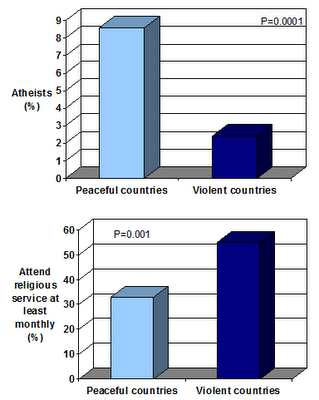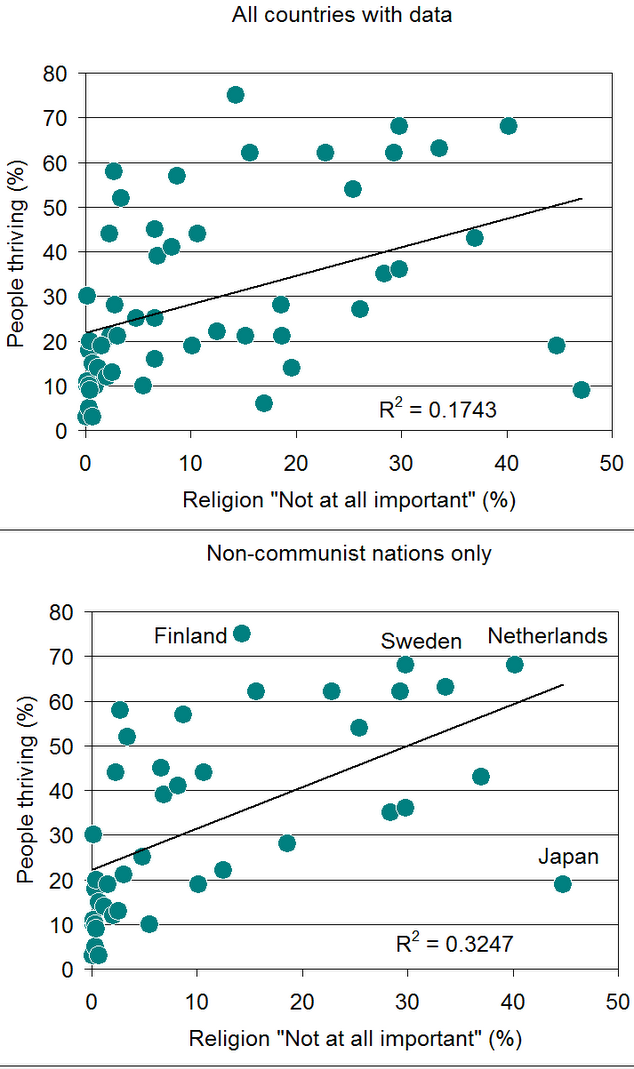When I was in Stockholm last year, I stood in the spot near the Royal Palace where this picture was taken. I remember thinking how beautiful the city was, not at all the miserable, lawless wasteland that many Mormons would predict it to be given its atheist majority (there are explicit teachings in the Book of Mormon that a country's prosperity is directly linked to worshipping God).

If anything the reverse appears to true. Japan (the most atheistic nation in the G-8) has the lowest murder rate, while the United States (the most Christian nation in the G-8) has the highest. Japan used to have much stronger religious faith, and a state religion. Guess what: Japan was remarkably aggressive and militaristic when "Shinto" was at its peak, and during WWII, when its Emperor was regarded as a God.
Louisiana, with America's highest church attendance rate, has twice the national average murder rate.
If atheism causes violence, why are right-wing fundamentalists unable to find a shred of statistical evidence to back up that claim?
The 2009 Global Peace Index assessed countries in light of 23 criteria, including foreign wars, internal conflicts, respect for human rights, the number of murders, the number of people in jail, the arms trade, and degrees of democracy. Interestingly, peaceful countries have more atheists and fewer regular worshippers. The difference is highly statistically significant (P=0.001 or less).

Atheists tend to come out on top on a number of measures of 'societal success' - wealth, education, life expectancy, and corruption, for example. In 2010, Gallup published an international ranking, the Global Well Being Index. It is interesting to correlate rates of atheism with societal well being.
A core part of their measure is the number of people who report they are thriving, defined as follows. Gallup measures life satisfaction by asking respondents to rate their present and future lives on a “ladder” scale with steps numbered from 0 to 10, where “0” indicates the worst possible life and “10” the best possible life. Individuals who rate their current lives a “7” or higher and their future an “8” or higher are considered thriving.

Of course, correlation does not equate to causation. Many other factors affect societal well being. However, the claim that non-belief results in the destruction of society is demonstrably false. Many countries are doing quite well in the absence of supernatural beliefs.
